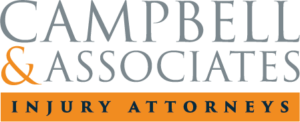Call Today
704-333-0885
Wrongful Death And Catastrophic Injury
About three (3) people are killed every day in North Carolina in a traffic related accident. Whether the person killed is a pedestrian, a driver, or a passenger, there is almost always someone to blame for the accident. Sometimes the at-fault driver is under the influence of drugs or alcohol. No matter how a person is killed in a traffic related accident, it is always an unspeakable tragedy for loved ones.
Fortunately, the law provides a cause of action for those who are killed due to the negligence of another. Such actions are known as claims for Wrongful Death. Unlike most personal injury claims, the statute of limitations for a Wrongful Death action is only two (2) years in North Carolina. Many folks who are killed in traffic related accidents die intestate, meaning they die without a will. That means a family member or a friend will have to petition to the Clerk of Court to be appointed as personal representative of the estate.
If the decedent did not name an executor in the will or dies intestate (without a will), the Clerk of Superior Court will grant letters of administration to a person who applies and is qualified to serve, in the following order: (1) The surviving spouse of the decedent; (2) Anyone who is to receive property as indicated by the will of the decedent; (3) Anyone who is entitled to receive property of the decedent by law in the absence of a will;(4) Any next of kin; (5) Any creditor to whom the decedent became obligated prior to death; (6) Any person of good character residing in the county who applies with the Clerk of Superior Court.
A person who seeks to qualify as a personal representative must apply to the Clerk of Superior Court in the county where the decedent lived on a form provided by the Clerk’s office.
The form calls for a preliminary inventory of all assets of the decedent as of the date of death. Therefore, the applicant will need to have a general knowledge of the decedent’s real estate, bank accounts, stocks, bonds, motor vehicles, and other personal property, and an estimated value of these assets, to complete the application. The instructions included on the form assist you in completing the form correctly.
After paying the costs of administration, taxes, and other valid claims against the estate, the personal representative must distribute the remaining assets of the estate in accordance with the will, or, if none, in accordance with the Intestate Succession Act (Chapter 29 of the General Statutes).
As for the proceeds from any successful Wrongful Death action, the personal representative must be bonded before receiving the wrongful death proceeds and must file a separate accounting concerning the wrongful death proceeds. Under G.S. 28A-18-2, the proceeds may only be used to pay certain designated expenses, and the balance can only be distributed to heirs of the decedent under the Intestate Succession Act regardless of whether or not there is a will.
The authorized expenses payable out of a Wrongful Death settlement are:
- Reasonable and necessary expenses of bringing the suit, and attorney fees;
- Burial expenses of the deceased;
- Medicare reimbursement; and
- Reasonable hospital and medical expenses (not exceeding $4,500)incurred as a result of the injury resulting in death. (But the amount applied to hospital and medical expenses may not exceed 50% of the total recovery, less attorney fees.) (Note: This amount is separate and in addition to any Medicaid reimbursement.)
Other damages are also recoverable through an action for Wrongful Death including:
- Expenses for care, treatment and hospitalization incident to the injury resulting in death;
- Compensation for pain and suffering of the decedent;
- The reasonable funeral expenses of the decedent;
- The present monetary value of the decedent to the persons entitled to receive the damages recovered, including but not limited to compensation for the loss of the reasonably expected:
- Net income of the decedent;
- Services, protection, care and assistance of the decedent, whether voluntary or obligatory, to the persons entitled to the damages recovered;
- Society, companionship, comfort, guidance, kindly offices and advice of the decedent to the persons entitled to the damages recovered;
- Such punitive damages as the decedent could have recovered pursuant to Chapter 1D of the General Statutes had the decedent survived, and punitive damages for wrongfully causing the death of the decedent through malice or willful or wanton conduct, as defined in G.S. 1D-5;
- Nominal damages when the jury so finds.
While a successful claim for Wrongful Death will never come close to replacing a loved one, you and your family may be entitled to substantial compensation if a family member is killed due to the negligence of another. Contact the our experienced wrongful death attorneys at Campbell & Associates if you have questions about your potential claim for wrongful death.
Written by: Brandon Ashburn, Associate Attorney, Campbell & Associates, Attorneys at Law
FREE AND CONFIDENTIAL CASE REVIEW
We want to hear your story, so we can help.
Call Today
704-333-0885



Membership in the Million Dollar Advocates Forum is limited to attorneys who have won million and multi-million dollar verdicts and settlements. You can find the criteria for membership in the Million Dollar Advocates by clicking here. Campbell & Associates Personal Injury Firm does not represent or claim that similar results will be achieved in your case.
The National Trial Lawyers is a national organization composed of the Top 100 Trial Lawyers from each state. Membership to the organization is obtained through special invitation and is extended only to those attorneys who exemplify superior qualifications, leadership, reputation, influence, stature, and profile as trial lawyers, both civil plaintiff and criminal defense. For more information on the National Trial Lawyers organization click here. Campbell & Associates Personal Injury Firm does not represent or claim that similar results will be achieved in your case.


